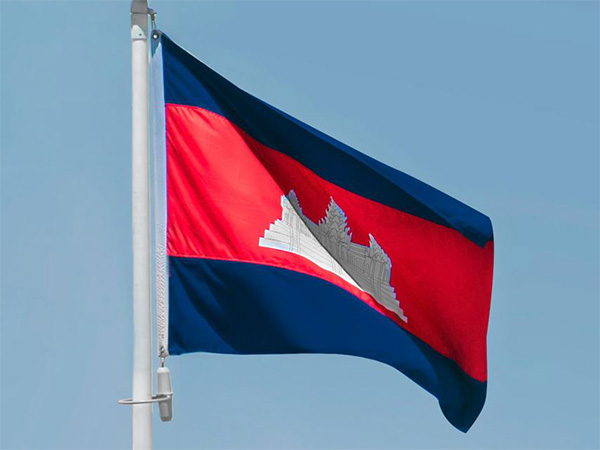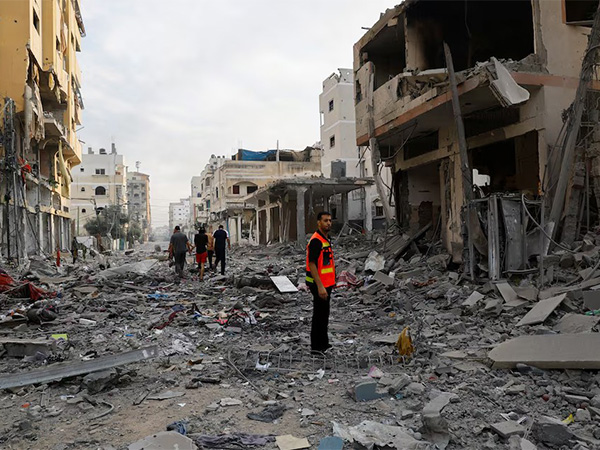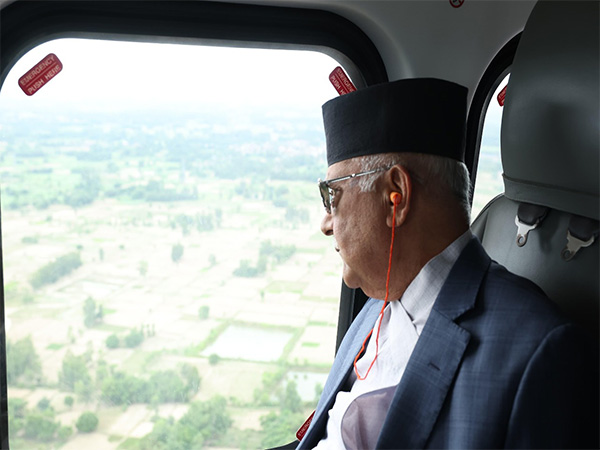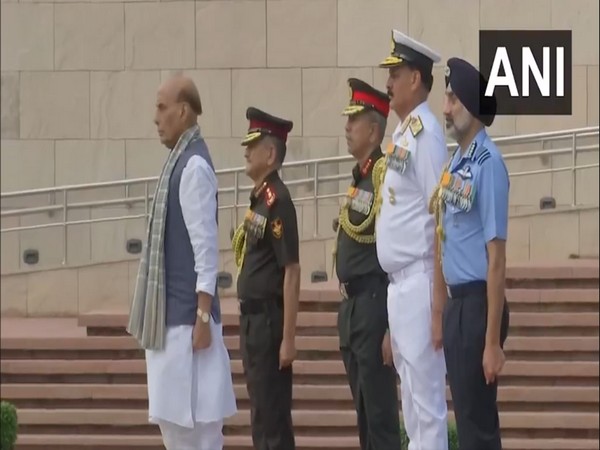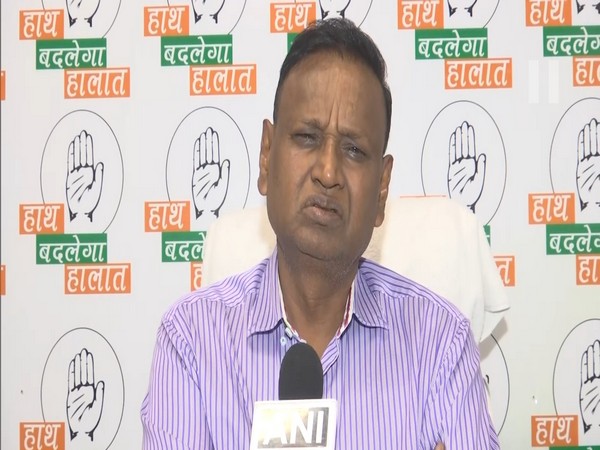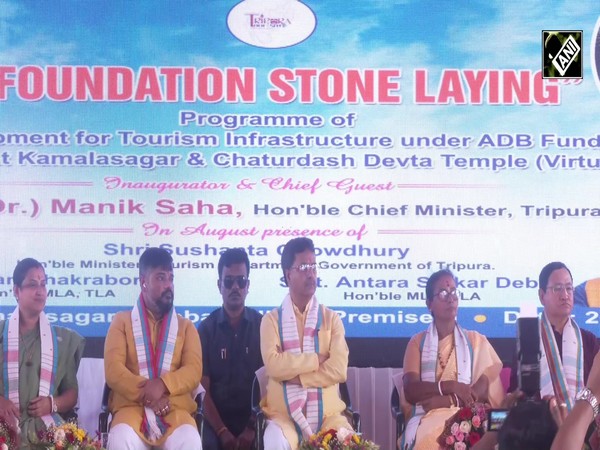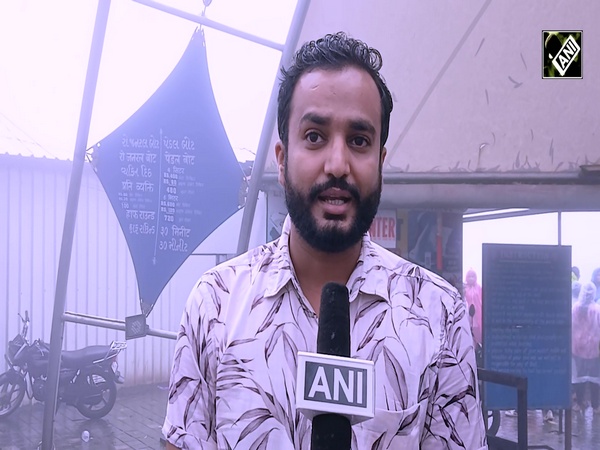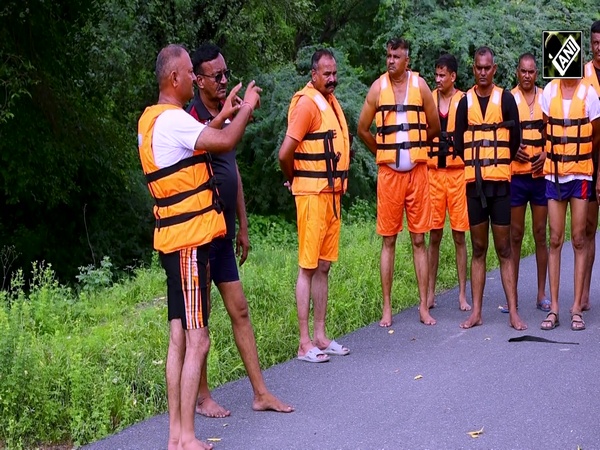Military spreads tentacles deeper into governance in Pakistan, says European think tank
May 15, 2020

Amsterdam [Netherlands], May 16 : Not only does military interference in matters of governance in Pakistan continue to be a reality but the military has gone far beyond the traditional realms of national security and foreign policy and strengthened its hold over other aspects of State rule, including finance, commerce, interior, railways, China-Pakistan Economic Corridor (CPEC) and even media management, says a European foreign policy think tank.
In its commentary, the European Foundation for South Asian Studies (EFSAS) says the composition of the Tehreek-e-Insaf (PTI) led government is a glaring example of the military's reach in the Federal Cabinet.
Key portfolios such as Finance, Interior, Commerce, Defense Production, Railways and Institutional Reforms are held by individuals with established links to the Military.
Following the Pakistan civilian government's inept handling of the COVID-19 crisis, Prime Minister Imran Khan removed his information advisor Firdaus Ashiq Awan, a civilian nominee of the military and replaced him with Lt. Gen. (Rtd.) Asim Saleem Bajwa who was the Director-General of the military's media wing, the Inter-Services Public Relations Pakistan (ISPR).
The induction of the former Pakistan military spokesman into the federal ministry signifies the "thirst of the military" to control the government's public narrative and information management in the prevailing uncertain times, the EFSAS report said.
The military already controls strategic projects under the China-Pakistan Economic Corridor under the stewardship of Lt. Gen. Bajwa as Chairman of the CPEC Authority.
Federal ministers linked to the military are Finance Advisor Abdul Hafeez Sheikh; Interior Minister Brigadier Ijaz Shah; Advisor on Commerce Abdul Razak Dawood; Minister Defence Production Minister Zubaida Jalal; Railway Minister Sheikh Rashid; and Advisor on Institutional Reforms Ishrat Hussain.
Even on the issue of coronavirus, including the imposition of lockdown and the social distancing restrictions, the military has not shied away.
After Imran Khan dithered on enforcing strict coronavirus lockdown on grounds of economic fallout, the military went ahead and announced a lockdown as well as the creation of the National Command and Control Centre (NCOC), under Lt. Gen. Hamood-uz-Zaman Khan, to oversee the implementation of COVID-19 policy, turning federal minister for Planning and Development, Asad Umar into just a figurehead in the NCOC, EFSAS said.
Another example of military intervention is that ex-military personnel are the chief secretaries of four provinces in Pakistan, including mineral-rich Punjab and Balochistan.
The government recently appointed two military officers in the "Naya Pakistan Housing and Development Authority" (NAPHDA), the much-vaunted project of PM Imran Khan to provide 5 million low-cost housing units for poor Pakistanis, as part of his social welfare agenda, the think tank noted.
Moreover, Pakistan is "arguably the only country in the world in which the jurisdiction of its armed forces is not restricted to guard its people and borders but includes involvement in business ventures."
Some of these businesses are, The Fauji Foundation, which runs projects which include sugar mills, cereal and corn, natural gas, plastics, fertilizers, cement, power, education and healthcare employs six to seven thousand military personnel and as per verified foreign sources, is worth a little more than $20 billion.
Besides, the business units survive on government subsidies and grants while the competition is scared off by military threats. Also, the Pakistani Army's clout in the country over the civil administration has also earned it the name of a "parallel state".
Recent media reports have indicated that former DG ISI, Lt. General Pasha will replace Imran Ismail, an Imran Khan acolyte, as Governor of Sindh Province, which is ruled by the opposition Pakistan People's Party (PPP).
According to EFSAS, these reports assumed importance in view of reported efforts by the PTI government to undo the 18th Constitutional Amendment passed in 2010 that grants greater autonomy and more financial resources to provinces.
The military is vying for more budgetary resources and is therefore against the 18th Amendment.
"Support of Pakistan People's Party will be crucial in any future move to tinker with the 18th Amendment and the reports about a former DG ISI being appointed as Governor of the PPP-ruled province must be viewed in this context," reports the European think tank.
The think tank's report pointed out that the military has "perfected itself in political wheeling and dealing" which was amply exhibited in the military's role in the political engineering in Balochistan that prevented Pakistan Muslim League-Nawaz (PML-N) from becoming the majority party in the upper house of the Parliament after the March 2018 Senate elections, the election in which Sadiq Sanjarani, became the Senate Chairman from nowhere."
In January, the extension in tenure of the Chief of Army Staff (CoAS), with the support of opposition parties like the PPP and the PML-N, explained Pakistan military's influence and ability at political manipulations, EFSAS said.
These developments also suggest that the military is aware that "Imran Khan has no political vision and is a compulsive and indecisive leader." it said suggesting that the military and Imran Khan are on the same page so far because "neither has the option of either going alone or opting for another collaborator to continue in governance."
According to EFSAS, the military would wait for a popular reaction on critical issues that would require change, and as always, "it will justify it under the pretext of national interest".
